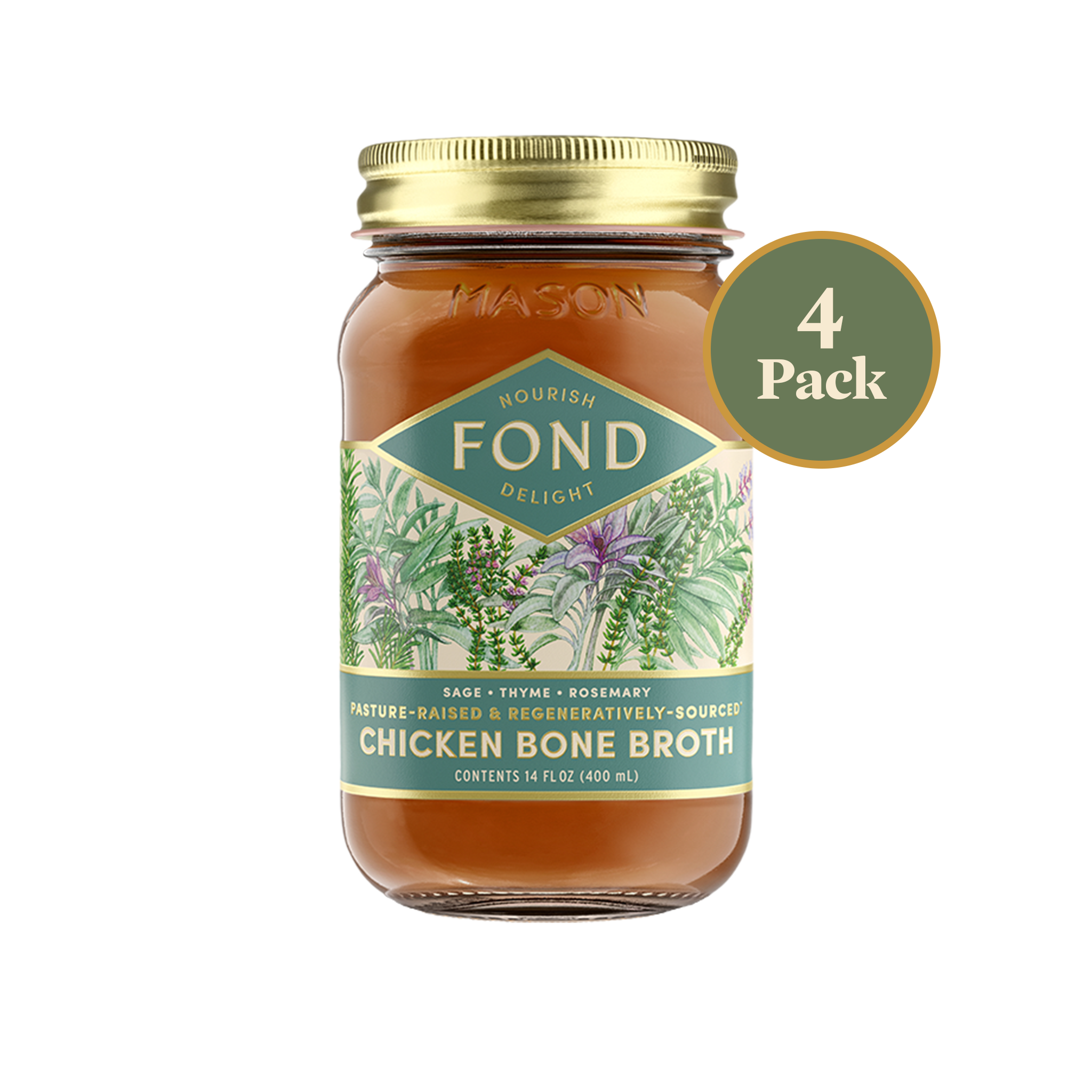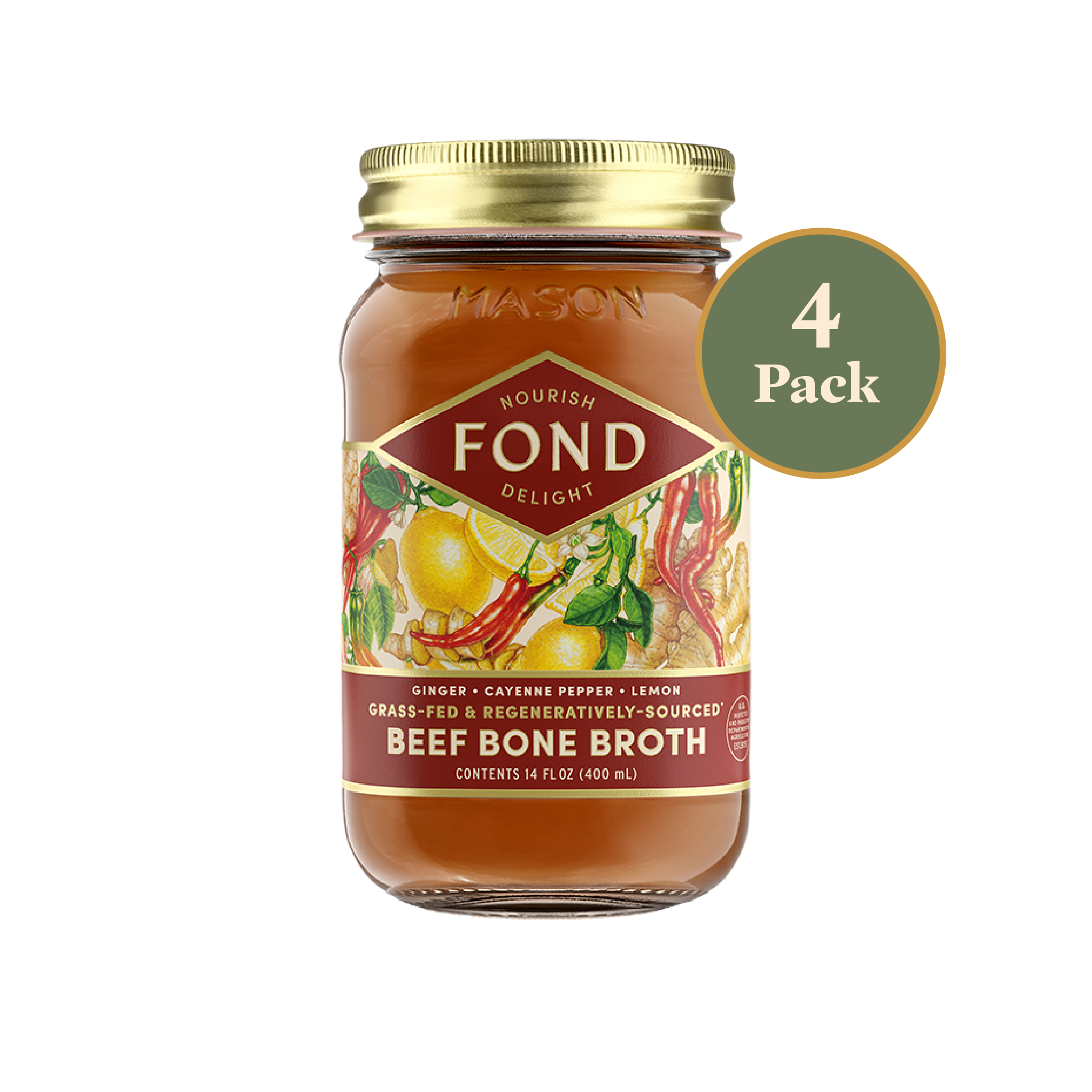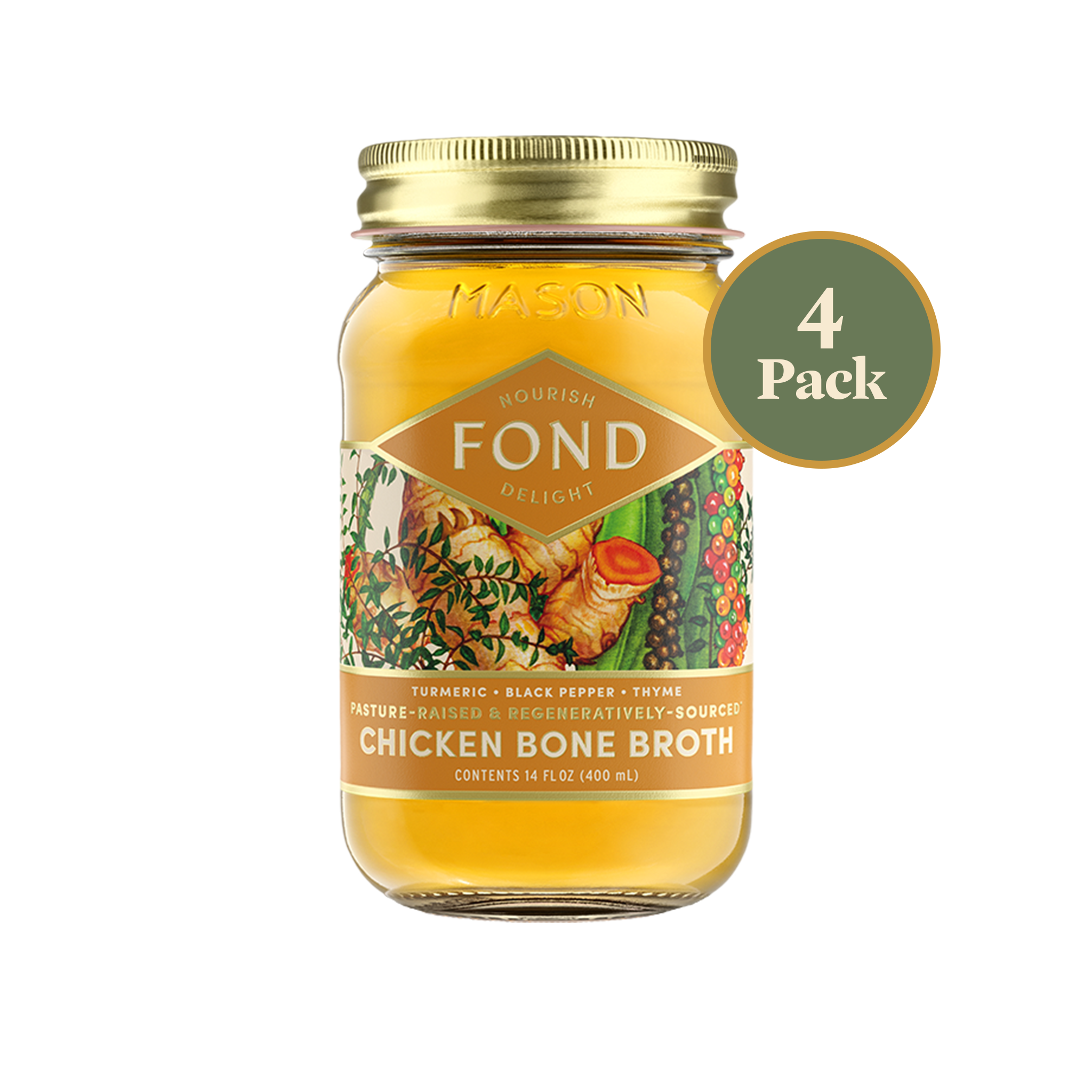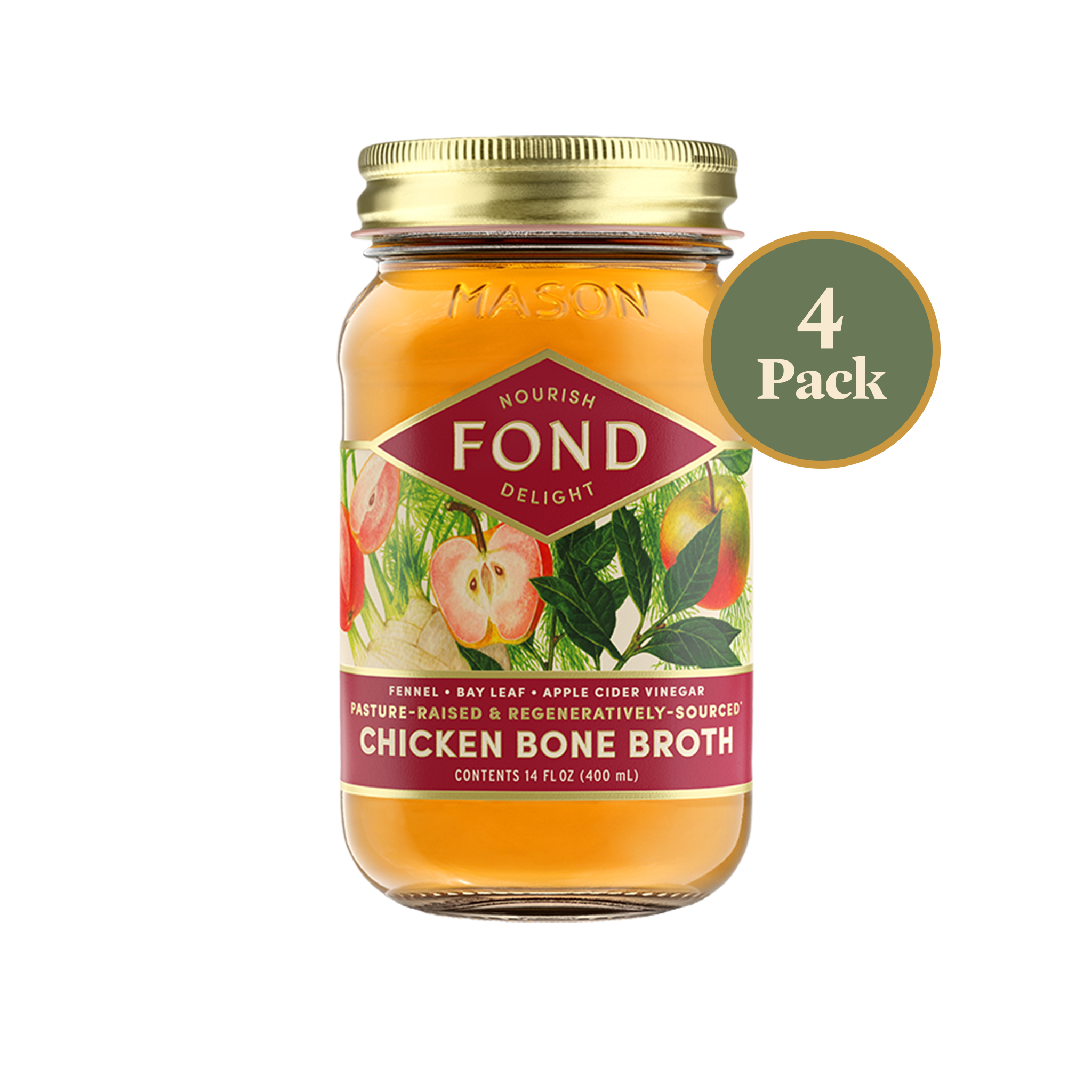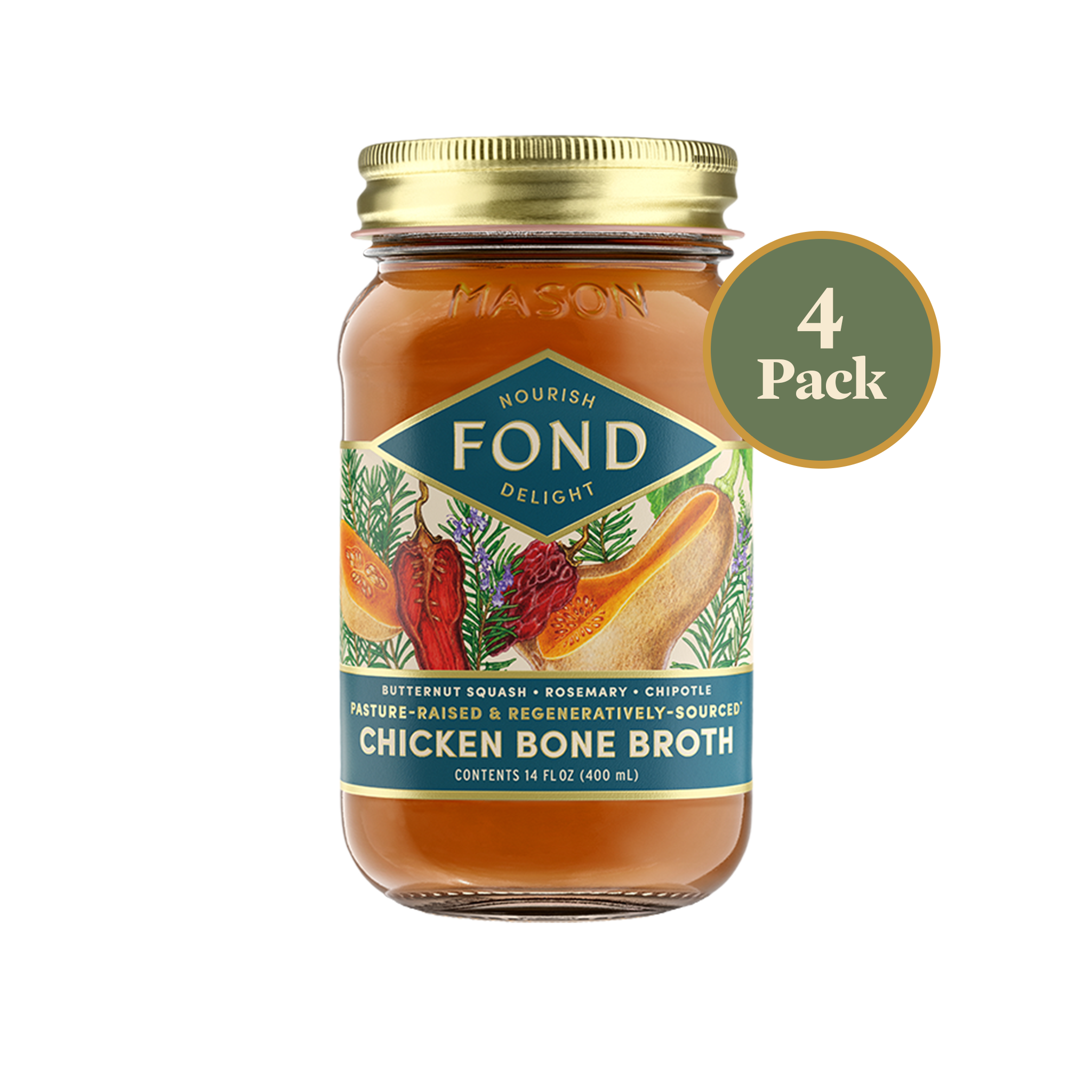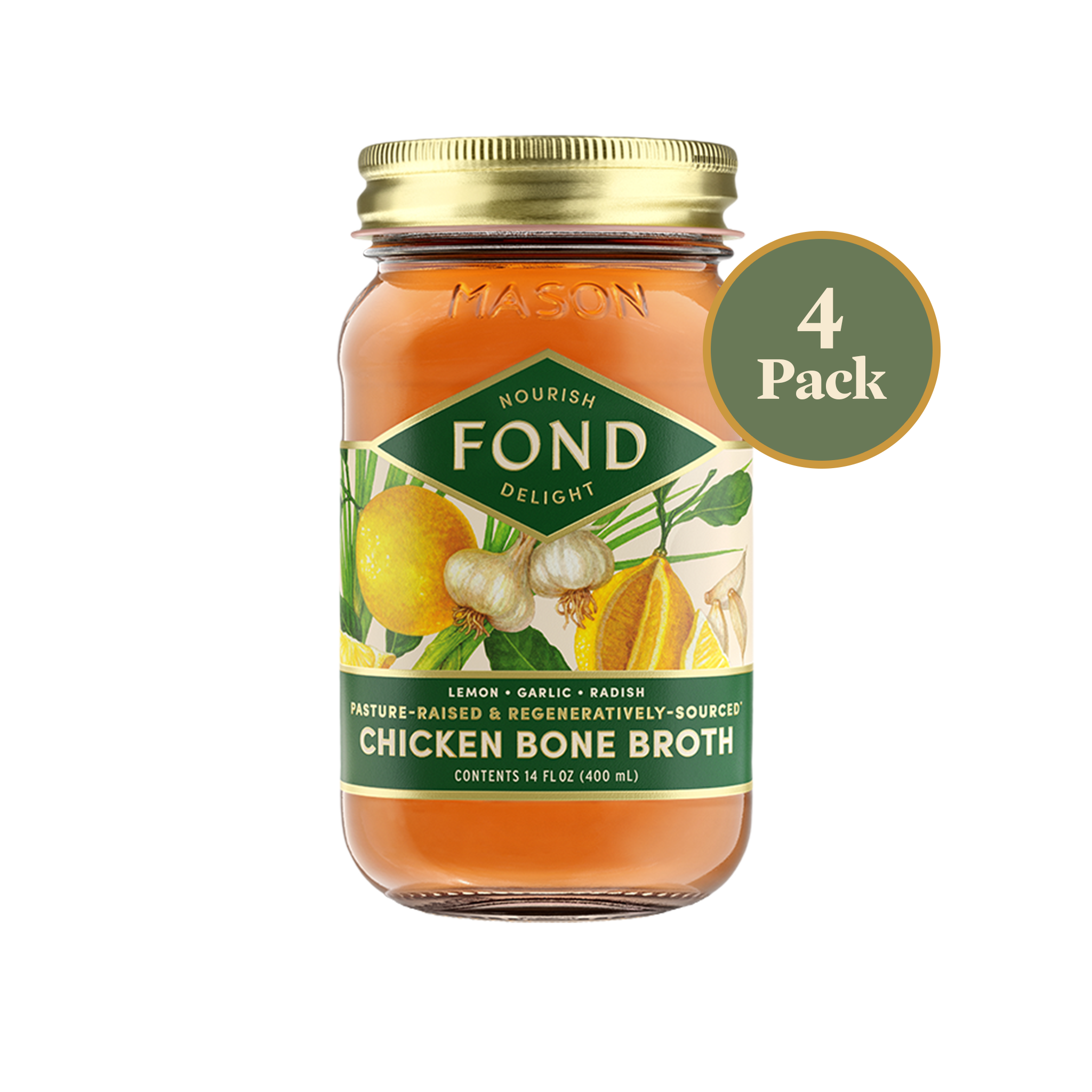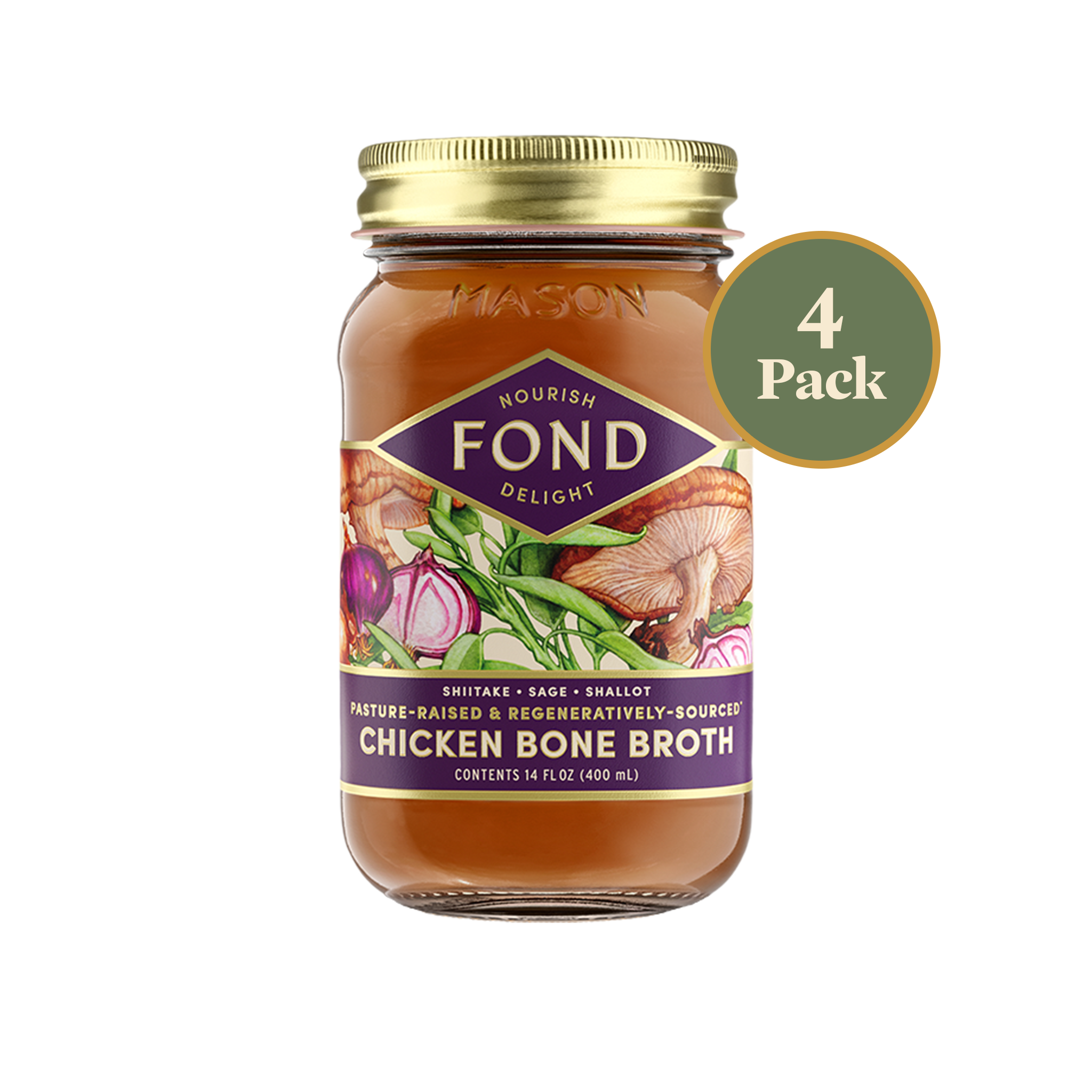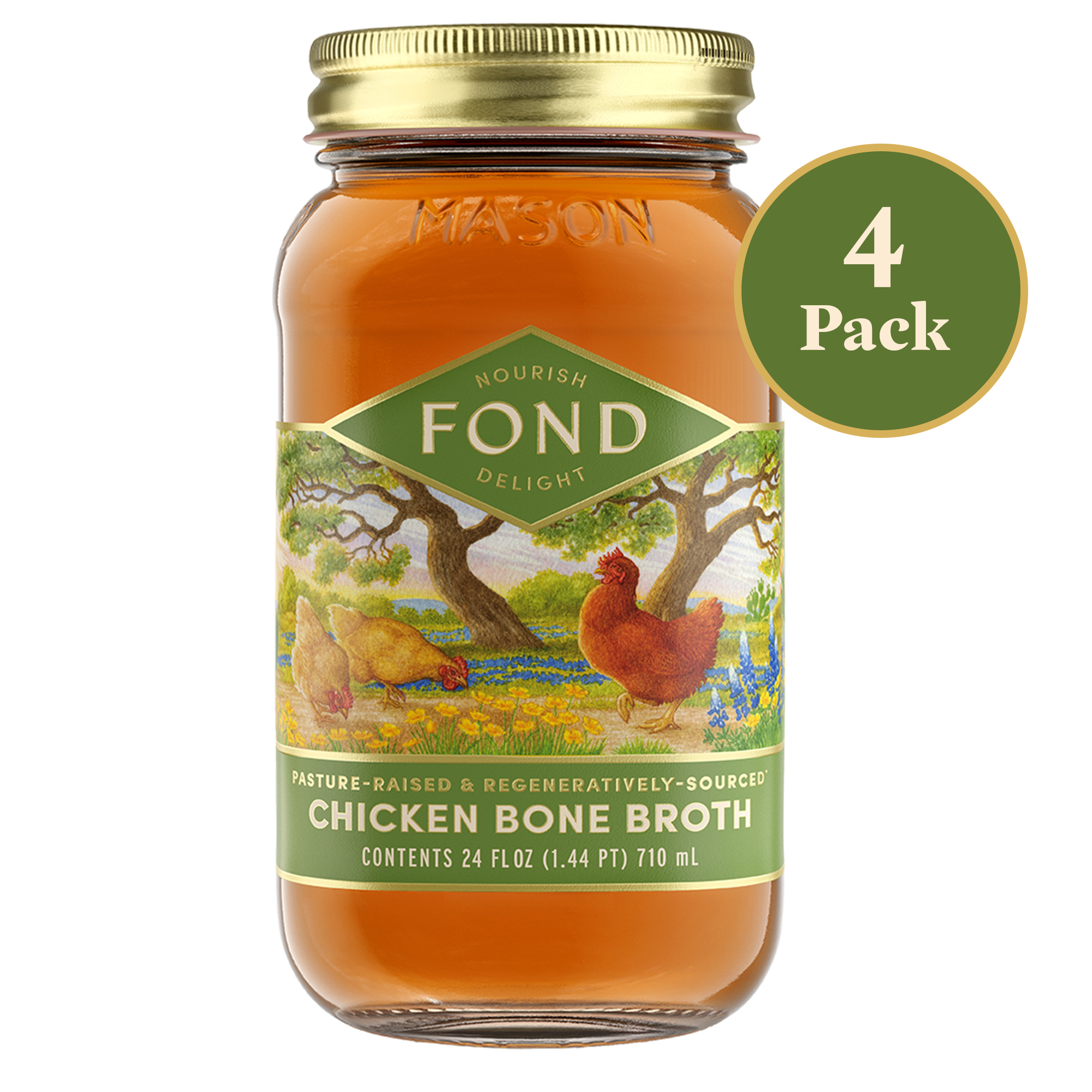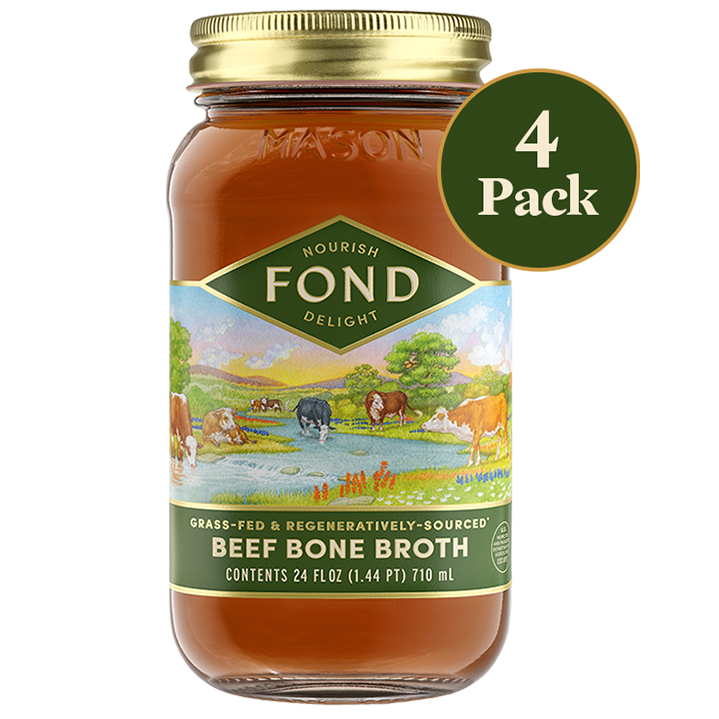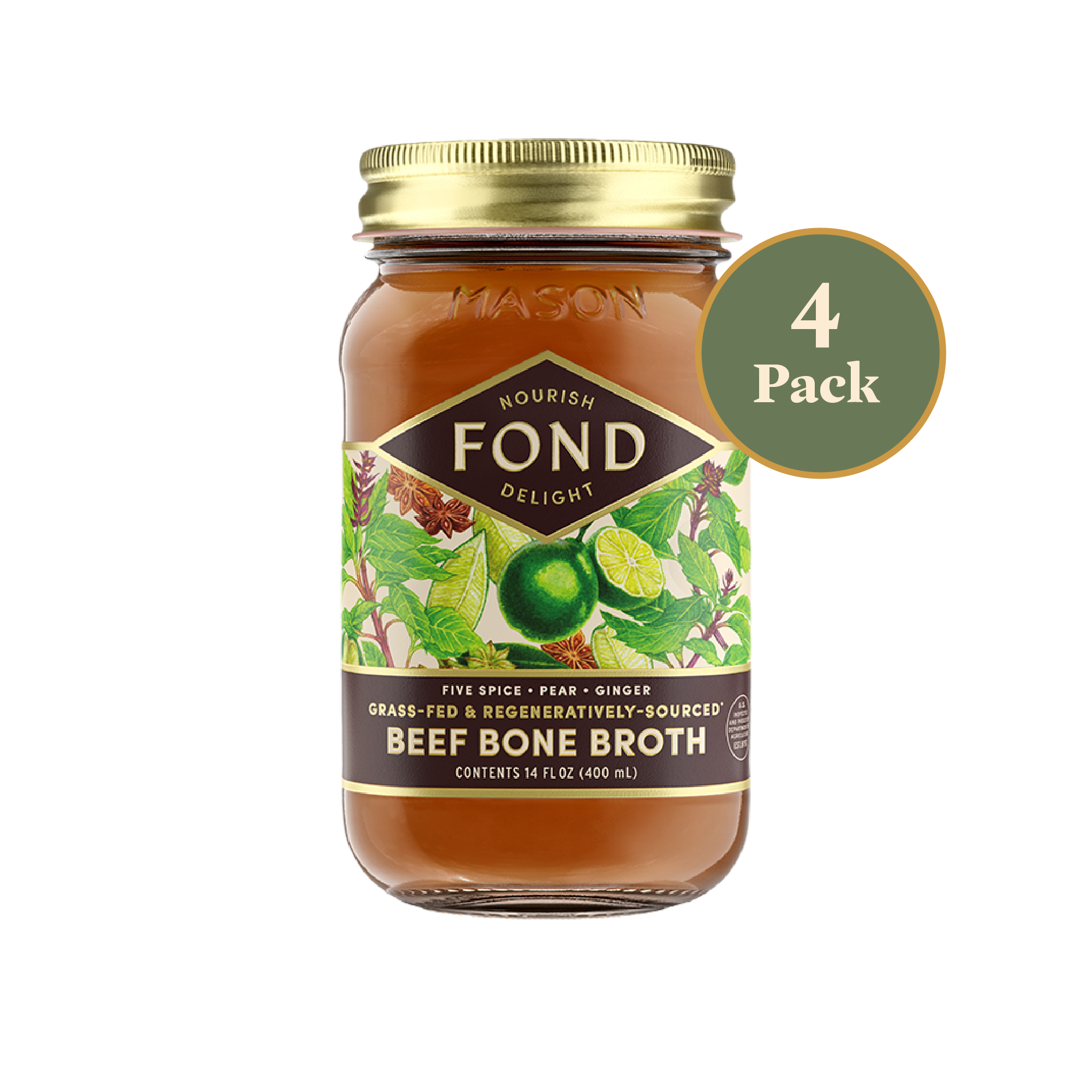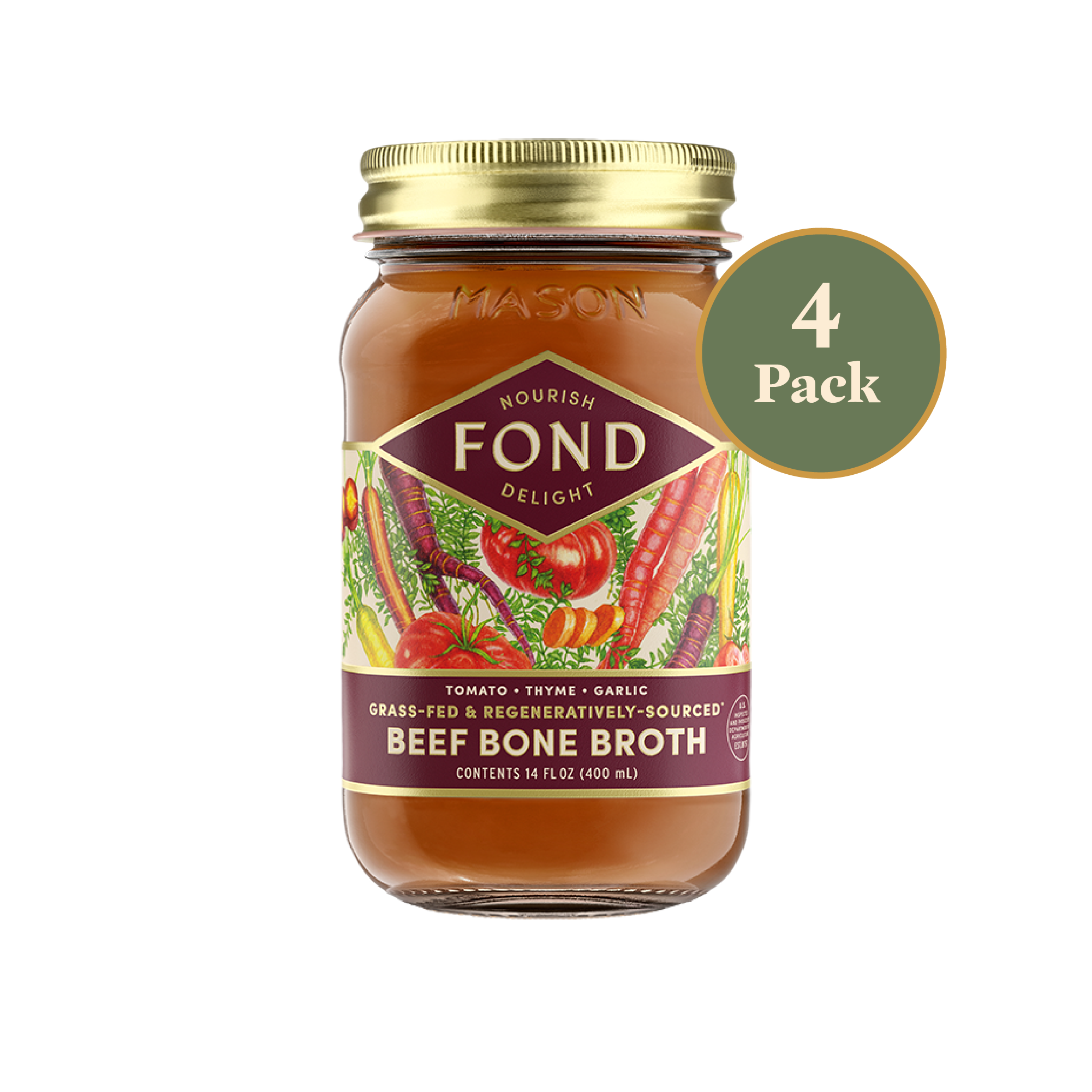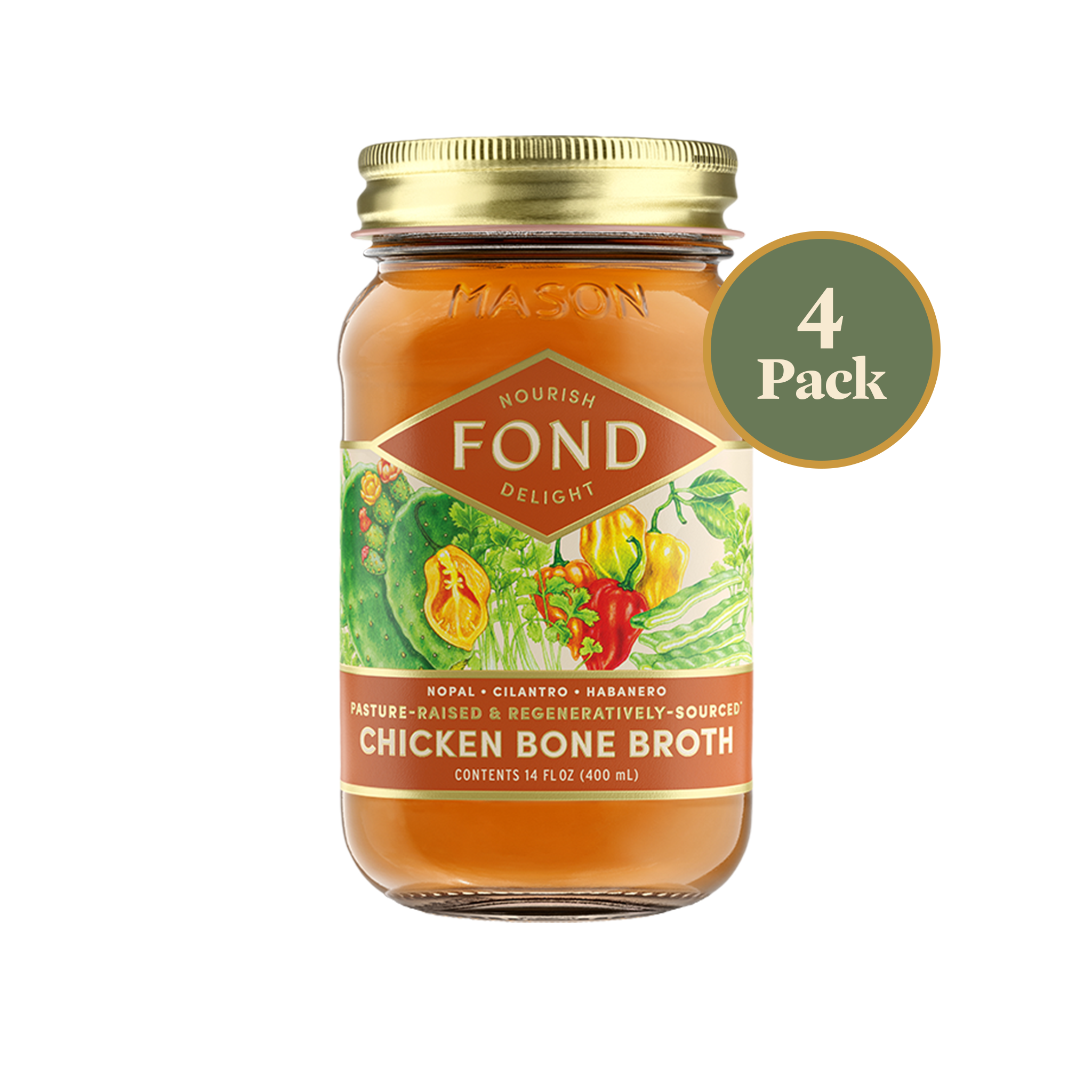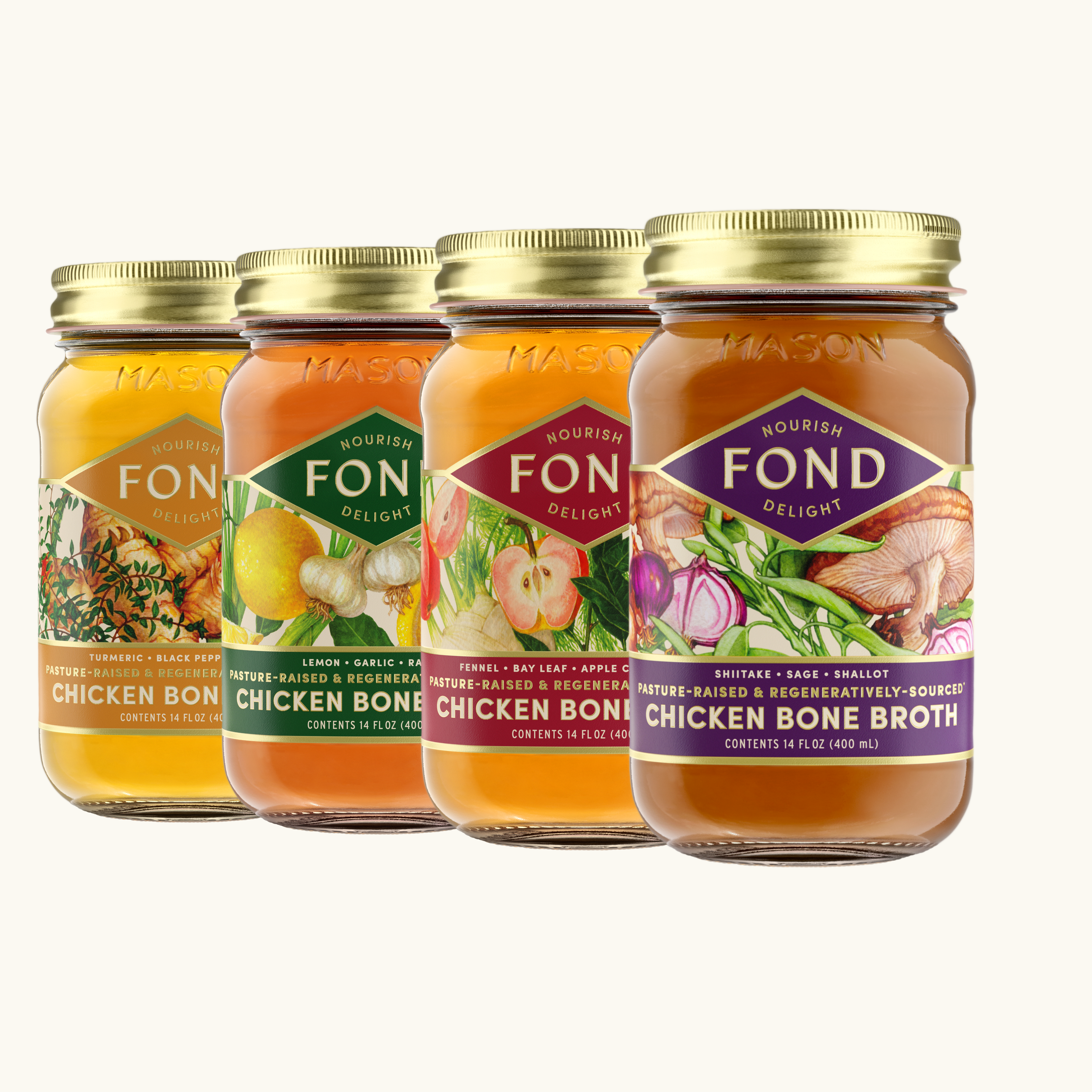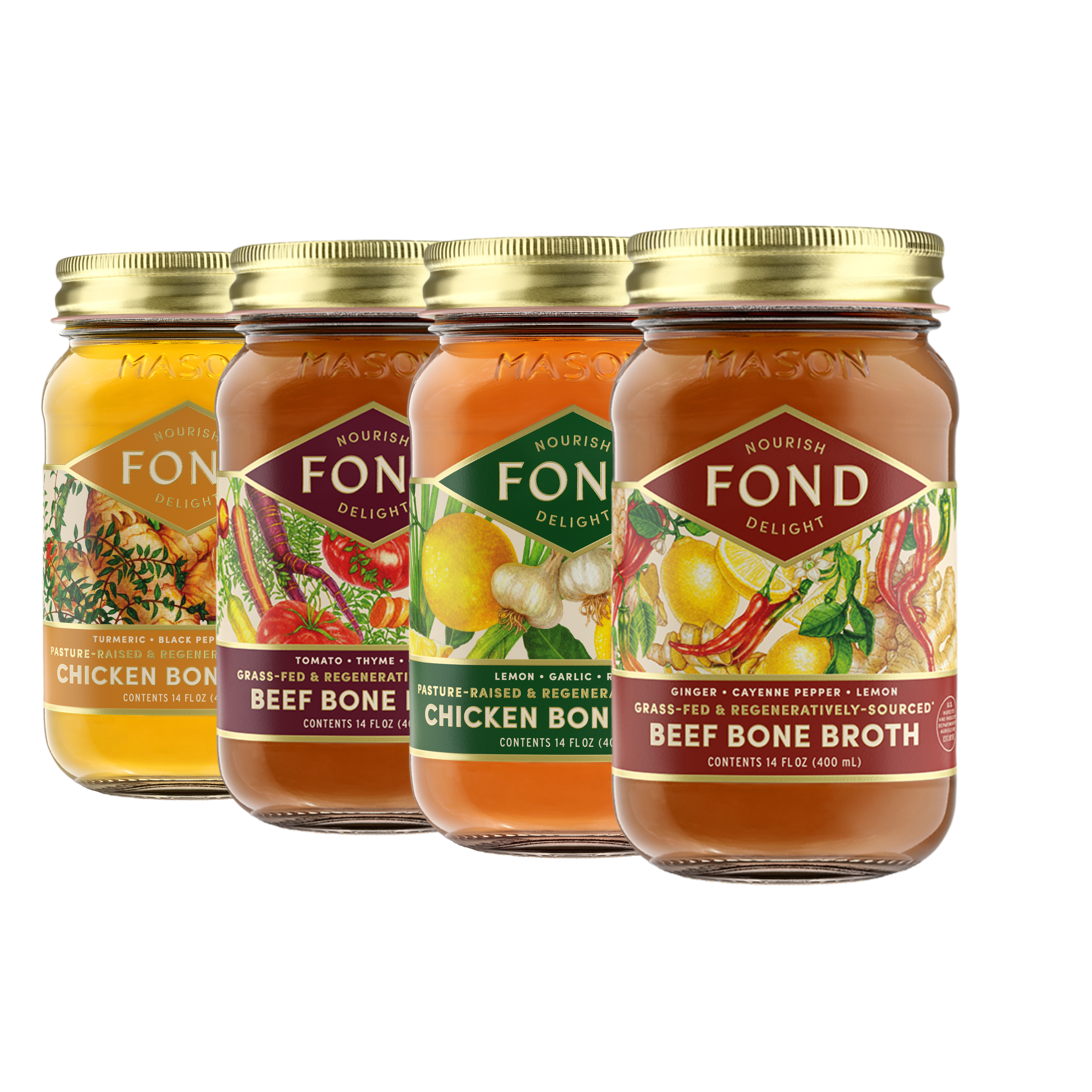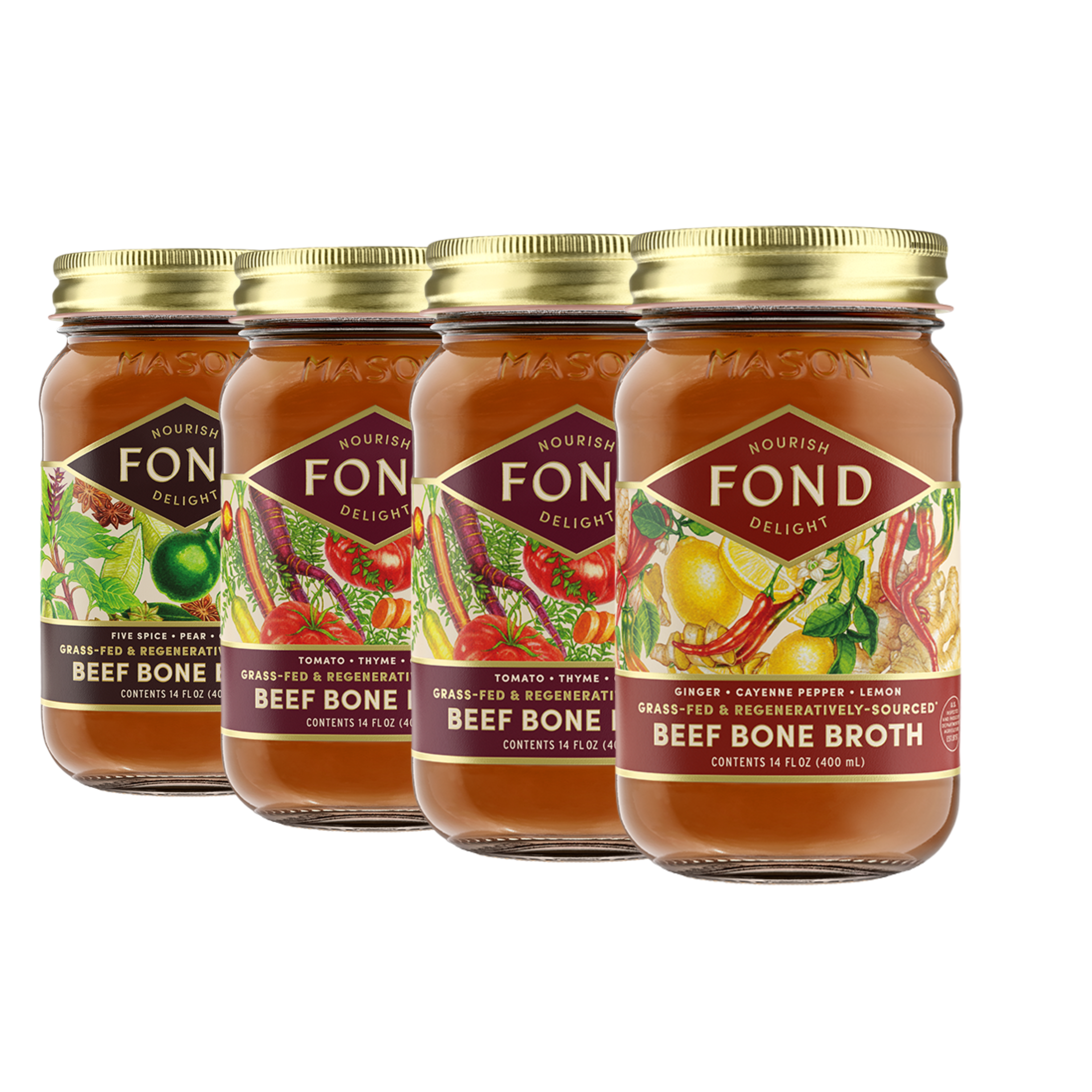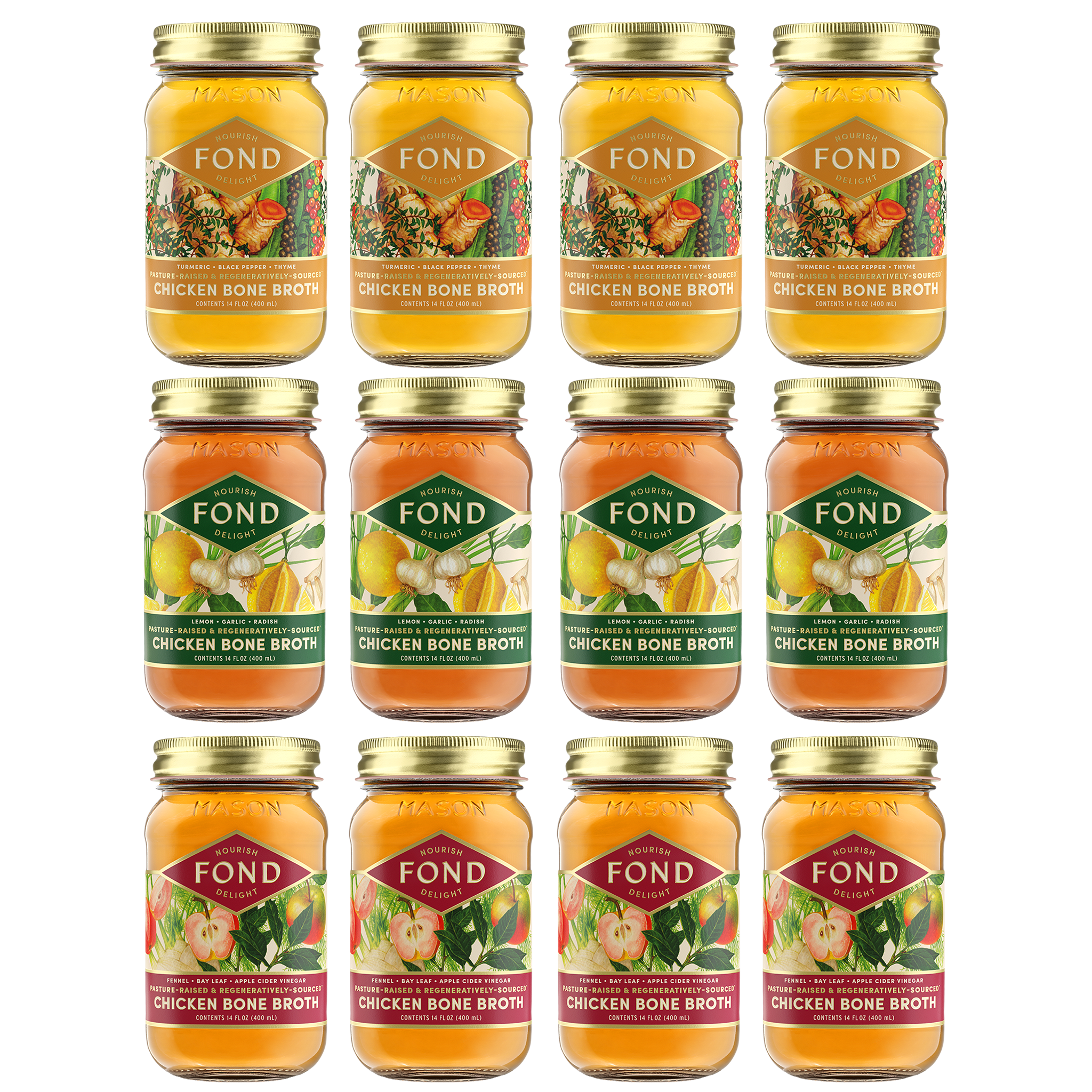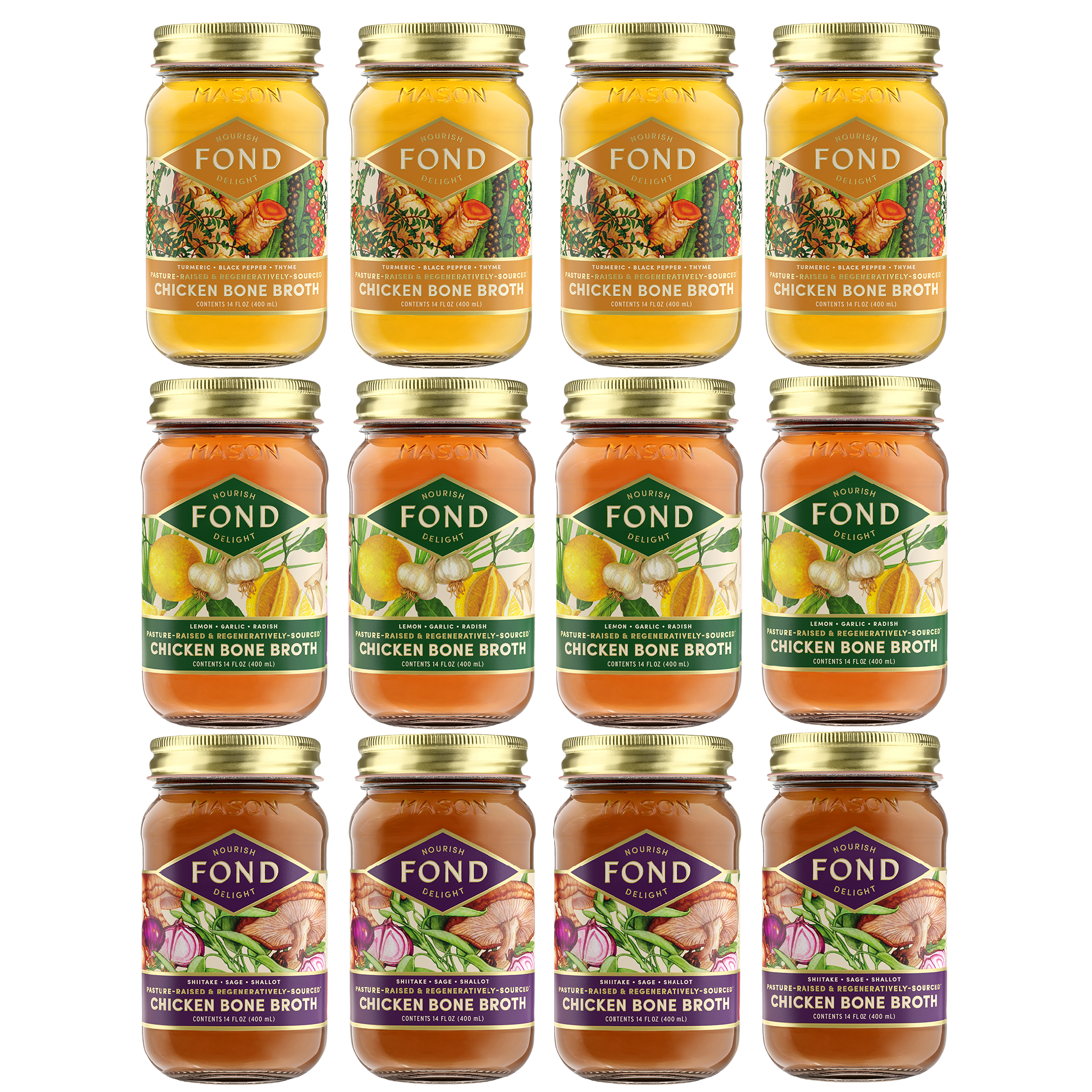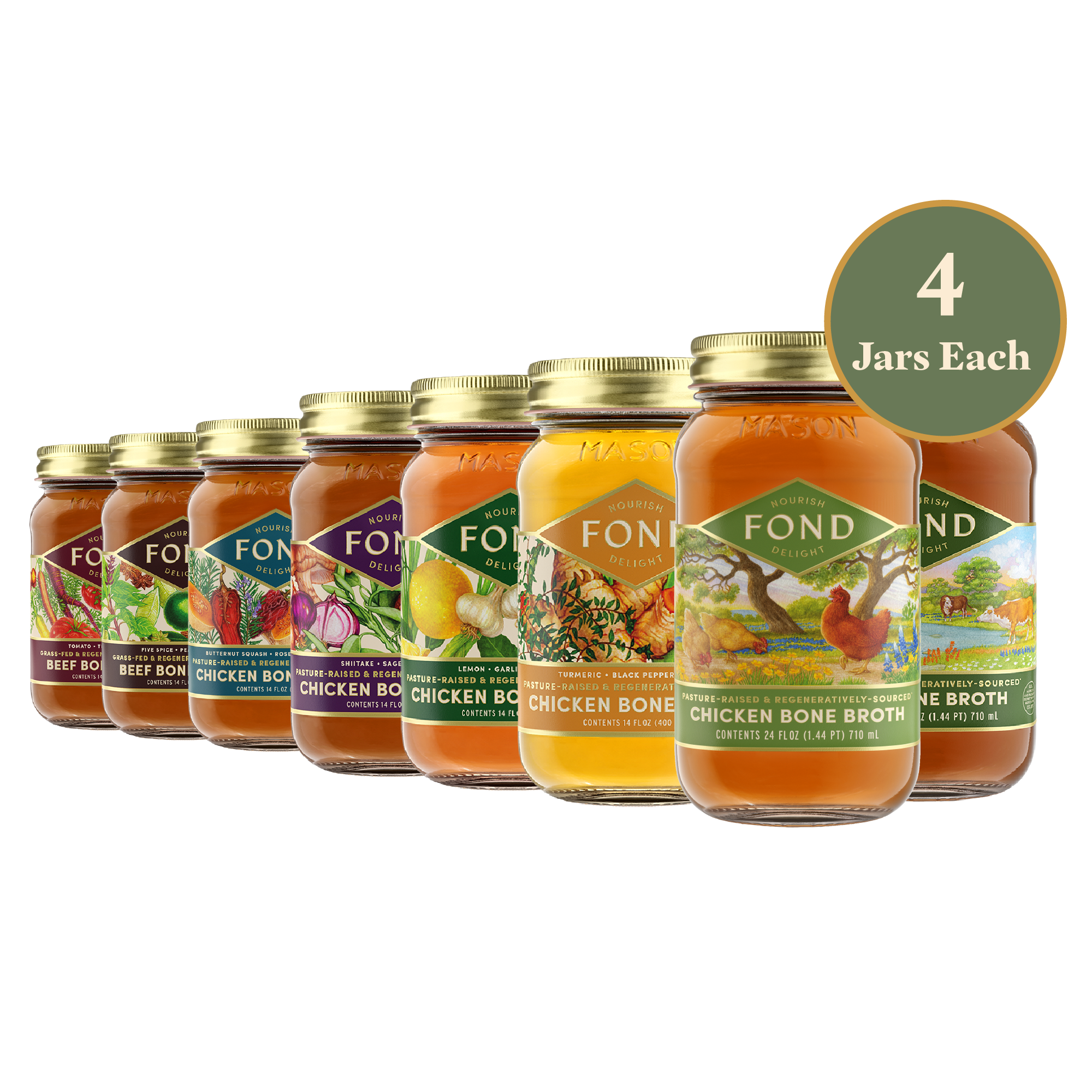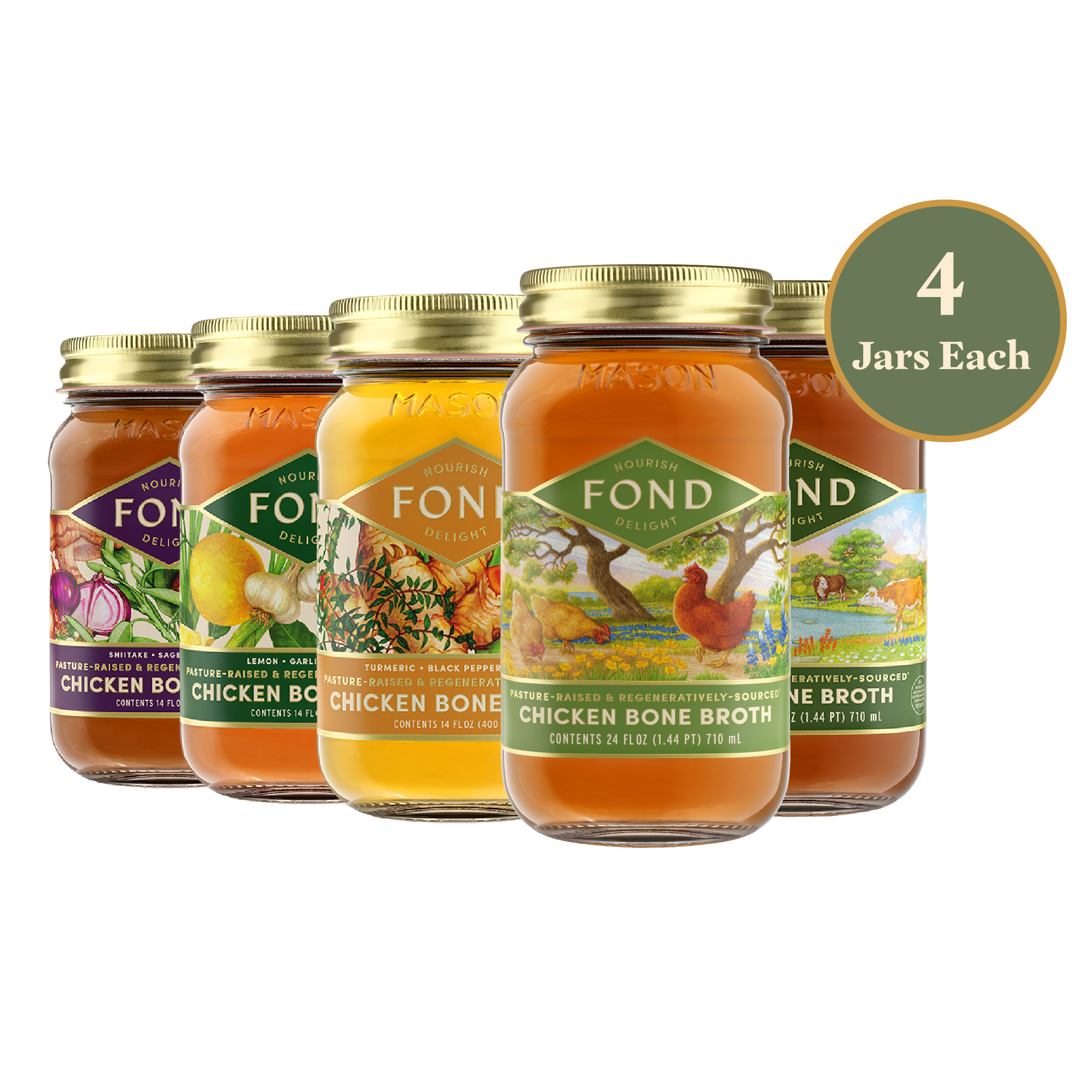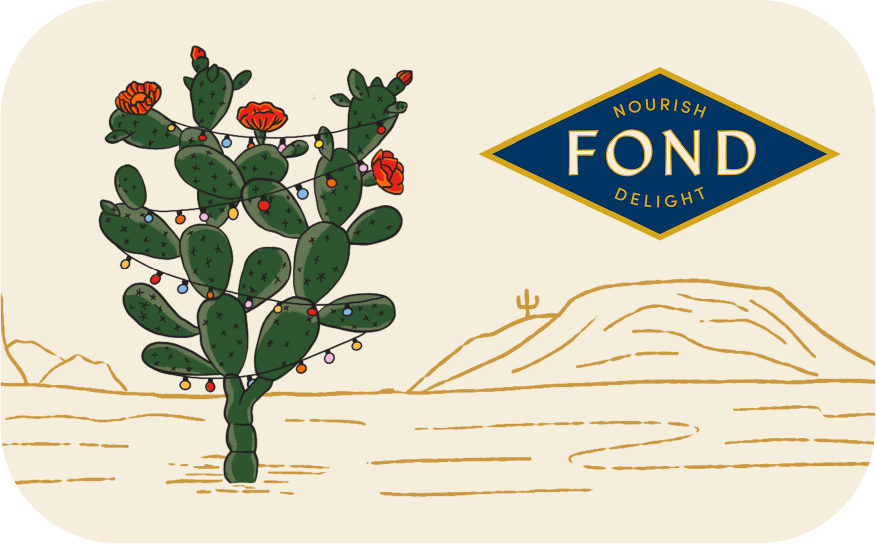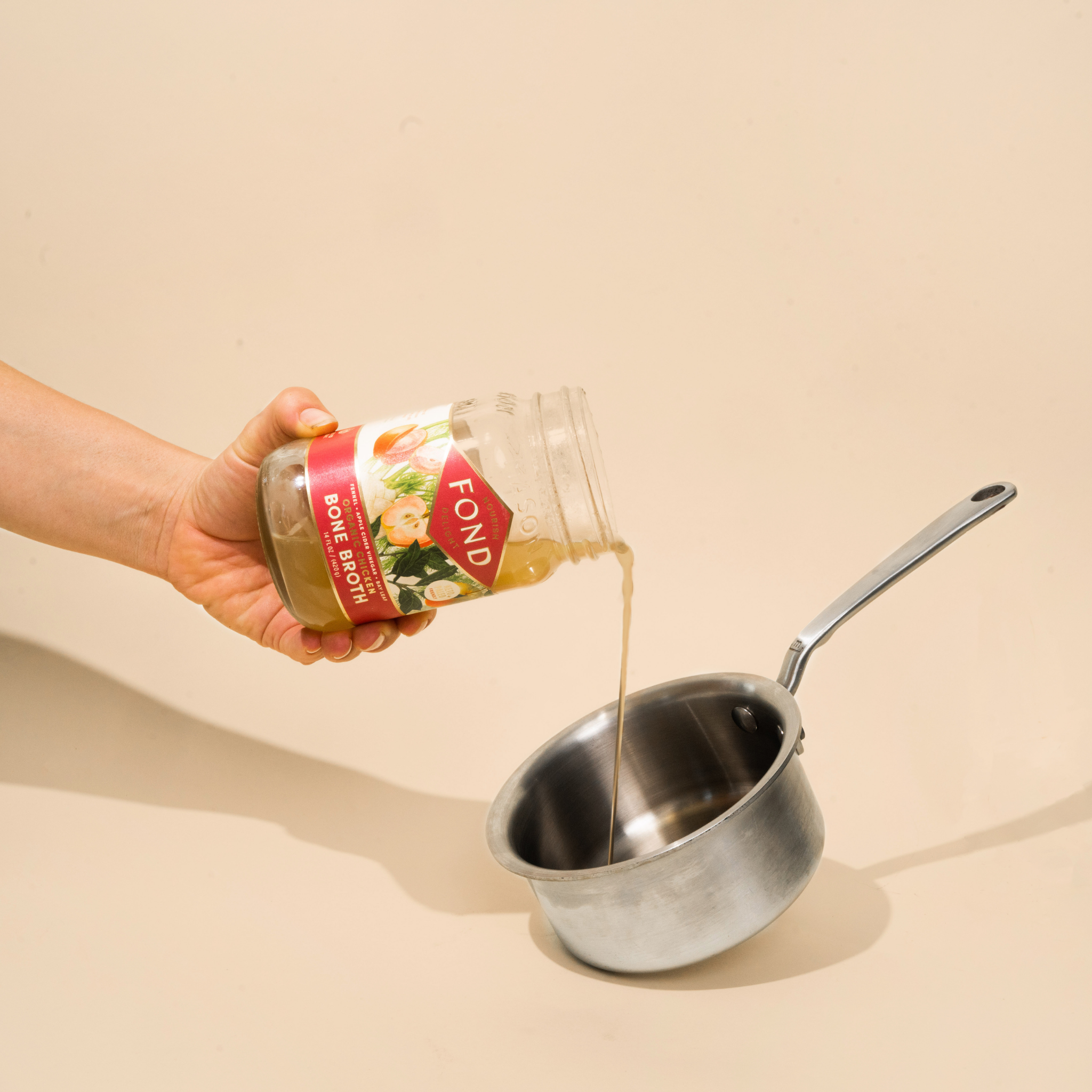When it comes to having a child, we often put all of our focus on those nine months when we are pregnant — it's all about taking prenatal vitamins, getting enough nutrients in our diet, and eliminating foods that may be harmful. And while that is hugely important, postpartum care is just as important and often talked about much less.
Today, we'll be defining what the postpartum period is, the baby blues, postnatal depletion, and even how bone broth may benefit mama.
What is the Postpartum Period?
The postpartum period is also called the fourth trimester, and it's the often forgotten or neglected period immediately after childbirth that sometimes last several months.
A lot changes during this season of life, and it will take time for you to adjust to this new role; learning to parent, becoming a new mama, and having a baby who needs you.
After giving birth and bringing home a new baby, you are creating space in your life for a completely new being that had needs 24/7 care
It's a time when no one is sleeping well, communication becomes trickier with your loved ones, hormones are changing drastically, and you may find yourself more irritable
Women often don't feel like themselves during this time, and that's completely normal mama! In fact, it's sometimes termed the baby blues. More on this next...
Baby Blues
The first 2-3 days to 2-3 weeks after giving birth, are considered the "baby blues". The baby blues are experienced by up to 85% of mamas who have given birth, and they're considered totally normal!
The baby blues often look like:
-
- crying for no reason
- irritability
- little things getting a really big rise out of you
- not feeling like yourself
After those first 2-3 weeks, if you are still experiencing any of the symptoms below, it is recommended that you talk to your doctor:
-
- feeling like you're in a fog
- just going through the motions
- little connection to your baby or what you're doing
- feeling sad or hopeless
- no desire to do the things you used to love
Another reason for these baby blues? The often unrealistic expectation that after having your baby, you'll immediately feel like yourself again. In reality, the period after giving birth is filled with adjustments and with lots of healing. It's also a time when your hormones are rapidly trying to adjust. In many traditional cultures, women are encouraged to rest in the months following birth, spending their time focused on caring for baby, healing, and repleting lost nutrients. However, in the US, the focus is often on getting back to "normal" as quickly as possible. This can sometimes lead to feelings of overwhelm, hormone imbalances, or postnatal depletion.
Postnatal Depletion
Postnatal depletion is a physical and mental deterioration caused not just by the process of giving birth and breastfeeding, but by the stresses and strains of modern parenthood, too.
It is suspected that 50% of mothers are affected by postnatal depletion, even up to 10 years after they had the child. Most of the time, nutrient-density is hardly even encouraged during pregnancy, let alone afterwards in the postpartum period. But the act of growing a life places an immense nutritional demand on the expecting mama. This is all the more reason to encourage optimal nourishment both during pregnancy and especially, after.
Sadly, the cultural pressure and indeed even the mother's own desire to "bounce back" as soon as possible, mean that turning to coffee and sugar for quick energy becomes the norm, all in an attempt to make up for feelings of lethargy and brain fog born of a need for rest and replenishment. We won't be able to "bounce back" if we aren't taking good care of our bodies.
The Tender First 40 Days
In recent years, the discussion of postnatal depletion has come to the forefront of many nutritional therapies and has become the focus of discussion around the First Forty Days.
While the discussion is new, the practice, called zuo yue zi or "the sitting month", is not. It has been a practice of the Chinese since 960. Zuo yue zi is a set of diet and lifestyle restrictions practiced after birth to restore a woman’s “broken body.”
Traditionally, phase one focuses on detox, phase 2 focuses on replenishing, phase 3 on recovery, and phase 4 on strength. Alongside these phases is family support so that mama can focus on rest, nutrient-dense foods, and their much-needed recovery.
While some are willing to spend thousands on a meal delivery service or to stay in a zou yue zi facility, that's not a requirement for prioritizing yourself and allowing adequate time and nutrients for healing. With a little preparation and guidance, you can recover and rebuild your strength without a hefty price tag.
How Bone Broth Can Help You During This Time
In traditional cultures, warm foods such as bone broth, goji berries, dates, pureed soups, chicken, pork, ginger, and high-quality salt, are all things that are believed to counteract the "coldness" of the postpartum period that comes with blood loss and the extreme loss of fluids in birth and nursing. One of my favorite resources on this is the book, The First 40 Days, which you can read more about here. (Not affiliated and no commission received!)
Our easy-to-sip bone broth tonics were created to help you rebuild your digestion, your hormones, and your health from "broken" to "thriving", one sip at a time. Options like bone broth, pureed soups, and even stews can be easier to digest than solid foods, and are often the perfect postpartum addition to give your body the nutrient-density it needs.
Plus, bone broth contains vital nutrients for recovery and healing (we're looking at you collagen, glycine, and a host of other micronutrients!) as well as naturally-occurring electrolytes. It's the perfect, healing nourishment postpartum.
Mother's Bone Broth
Mother’s is our apple cider vinegar, bay leaf, and fennel-infused bone broth, originally created to nourish postpartum mothers in the tender 40 days after labor. The ingredients in Mother's are specifically designed to benefit mamas in those first 40 days:
Apple Cider Vinegar (ACV) — ACV has many health benefits, but specifically has been shown to aid in hair health. In postpartum, many mother's experience hair loss due to hormone changes. ACV may prevent hair loss and stimulate new hair growth by warding off bacteria and keeping a balanced pH level.
Fennel — Fennel has been shown to have galactogenic properties, meaning it helps increase milk secretion. Fennel may increase milk secretion and blood levels of prolactin — a hormone that signals the body to produce breast milk.
Bay Leaf — Bay leaves are rich in a compound called ‘Linalool’ that helps lower the level of stress hormones in the body and as a result, may reduce anxiety and chances of depression, too.
You can read more about Mother's Bone Broth here.
Final Thoughts
When it comes to pregnancy and the postpartum period, it's more important than ever to care for your body as it goes through significant changes. All new mother's are susceptible to the baby blues and postnatal depletion. Eat well, get good rest, and take time to care for yourself, so that you can care for your little one well. Incorporating foods like bone broth is an easy way to replete nutrients lost during pregnancy and birth, as well as continue supporting your body postpartum.
Have comments, questions, or concerns? Please reach out to us at hello@fondbonebroth.com, we would love to chat!
Sources:
https://www.ncbi.nlm.nih.gov/pmc/articles/PMC4165197/
https://www.healthline.com/health/parenting/how-to-increase-breast-milk
https://www.abc.net.au/everyday/what-is-postnatal-depletion-do-i-have-it/10862228#:~:text=Postnatal depletion is a physical,and strains of modern parenthood.
https://www.insider.com/apple-cider-vinegar-for-hair-2019-3#:~:text=ACV might help prevent hair,this will stimulate hair growth.







